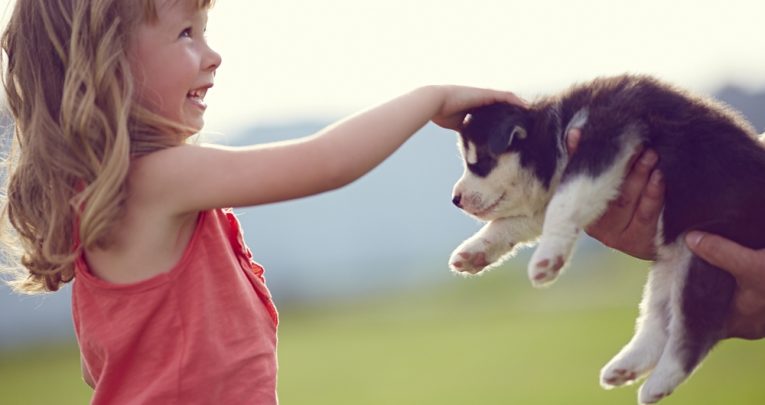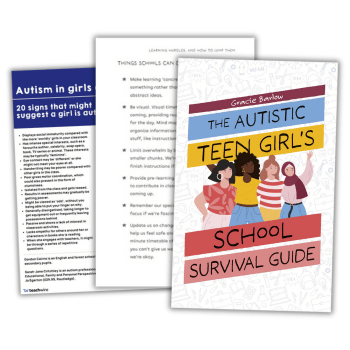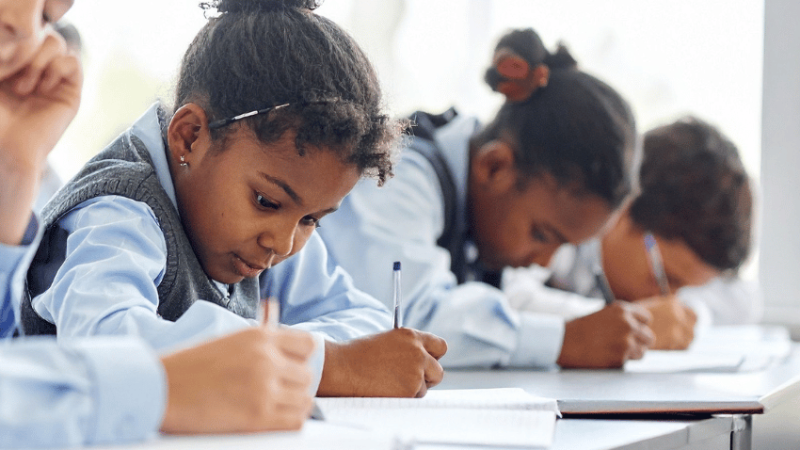Animal magic – How your early learners with SEN can benefit from pet therapy

Having access to animals can enhance special children’s wellbeing, and encourage them to interact and communicate, says Adele Devine…

- by Adele Devine
- Early years and SEN specialist, author, keynote speaker and trainer Visit website

You are in a waiting room and have a horrid cold that’s making you feel achy and uncomfortable. There are a few other people here, but you’re not in the mood for being social. Ideally you’d like to be snuggled on your sofa at home. So you find something else to focus on – maybe your phone?
The door opens. There’s a lady with a small dog. He is now sniffing your shoes. You love dogs. You can’t help but smile. You reach down and pat him. You find yourself asking his name, his age… What’s happened?
An amazing effect
Animals can have an amazing effect on people, encouraging communication, social interactions and feelings of wellbeing. Their impact can be particularly pronounced when it comes to children with special educational needs, in the following ways:
Touch Stroking a pet can relax children and alleviate their anxieties.
Needs Pets need feeding, grooming and exercise. Being ‘needed’ promotes a ‘can do’ attitude in other areas too.
Listening Pets can listen and pick up on children’s feelings; they may even alert special children to their own feelings.
Communication Pets understand; they don’t use confusing language and provide something to talk about.
Trust Pets never judge, and thus cause no anxiety linked to social blunders or mistakes. They don’t make unreasonable demands and are more predictable.
Humour Pets can make children laugh, which is so important for mental health and happiness.
Distraction Pets can distract from children, alleviating social pressures and associated anxieties.
Time Pets will give and accept affection for extended periods, providing their basic needs are met.
Unconditional love The most important thing a pet can provide, and vital to emotional wellbeing.
Case study – Pets As Therapy
Play skills I love watching our students interact with therapy dogs at playtime. They walk them, groom them and enjoy them. With the dogs, they smile more, talk more and seem calmer.
There are children who find times with little structure difficult, who often don’t yet have the social play skills to join in with role-play games. A Pets As Therapy (PAT) dog can be a social stepping stone, providing the companionship a child needs.
As they engage with the dog, the child will develop skills to help with interaction, communication, cooperation and care. They move closer to being able to interact with friends and develop their play skills.
Communication When our PAT dog, Savannah, came into class, a dog biscuit was put into the hand of one of our children with physical disabilities so that he could feed her. Savannah ate the biscuit and the child smiled.
This was huge – we knew that the boy either understood that he was feeding Savannah, or was responding to the funny feeling of her mouth.
Yet when we tried again, there was no smile. Why? The biscuit had dropped from his hand so he hadn’t got to feed Savannah in the same way. We tried again and got another big smile. This revealed many ‘can dos’, and was a really positive moment in this boy’s day.
Conquering fears Some children have fears or phobias. Some are instinctive, while others are learnt from adults. One little girl didn’t want to go near Savannah when she first arrived. She was really anxious and would hide, so we took things slowly.
We modelled that Savannah was safe, patted her and brushed her. Gradually the girl came closer. She will now walk Savannah proudly around the class holding her lead.
What if this fear was never revealed or tackled? What if it had stayed with that child for life?
Case study – Sol’s guinea pigs
The storm Sol seemed to like creating a bit of chaos. I observed him bouncing around the classroom, climbing on the tables and throwing things up in the air. He seemed to have learnt all the things that triggered other children, and would use this knowledge to create yet more chaos.
We could not go on like this, so I called Sol’s home to get some more information about his motivators. Were there any times when he was calm and settled?
The right pet Mum said that the one thing that settled Sol at home was sitting with his pet – a guinea pig. He absolutely loved it.
I spoke to Sol about his guinea pigs. He enjoyed discussing the topic, and I was able to create more motivating work using a guinea pig theme – but what I really wanted was for Sol to be able to access a guinea pig at school.
The calm It took some time and a lot of persuasion, but we eventually got two guinea pigs for school. As expected, Sol loved to help with them, but most of all he loved to sit with them on his lap. He would be quiet, content and calm as he stoked the guinea pigs and spoke to them.
It was wonderful to watch. Having access to the guinea pigs made such a difference to Sol’s school days.
George Eliot once observed, “Animals are such agreeable friends – they ask no questions; they pass no criticisms.”
School can be a terrifying social minefield – full of demands, unpredictable noise, boisterous children and no time to process it all. Having access to the right animal can make such a difference to special children.
The research
Marguerite O’Haire, a PHD candidate at The University of Queensland, Australia led a study on the comparative interaction of children with autism when given toys and guinea pigs.
She observed that, “Children with autism engaged in 55% more social behaviours when they were with animals compared to toys.” The amount the children smiled doubled, too.
Marguerite concluded that, “Including an animal in children’s playtime or home activities may be an effective way to encourage socialization with other children as well as adults.”
Adele Devine is a teacher at Portesbery School & director of SEN Assist; for more information, visit www.senassist.com or follow @AdeleDevine. Browse ideas for National Pet Month.










